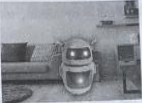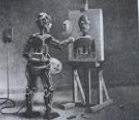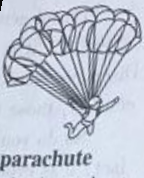AI(人工智能) makes our lives easier and better. Let’s see the amazing AI.
| Cool driverless bus A bus door opens and you get on. Wait, where is the driver? Here is a new kind of driverless bus called Apolong. It was produced in 2018. It can seat 14 people and doesn’t need a driver. The bus follows traffic rules. |
| Your close friend Hi, everyone. I’m Xiaoice, a chatbot(聊天机器人). I was “born” in 2014. I speak like a 17-year-old girl. If you feel lonely, you can talk with me. I’m good at singing and telling stories. I want to be your friend! |
| World’s first AI presenter Hey, look! The famous Chinese presenter Qiu Hao is reporting the news for us. But, is “he” really Qiu Hao? The answer is “no”. This is the world’s first AI presenter. It was invented in 2018. It looks and speaks just like a real person. |
| Popular AI artist This beautiful painting was at an auction(拍卖) in 2018. It sold for about 3,000,000 yuan! But it is not a work by a famous painter, such as Vincent van Gogh. It was painted by an AI artist. Three Frenchmen created the AI artist in 2017. |
1.When was Apolong produced?
A.In 2019. B.In 2018. C.In 2017. D.In 2014.
2.Both Qiu Hao and Xiaoice can ________.
A.drive B.paint C.swim D.speak
3.________ created the AI artist.
A.Three Frenchmen B.A 17-year-old girl C.The Chinese presenter D.Vincent van Gogh




